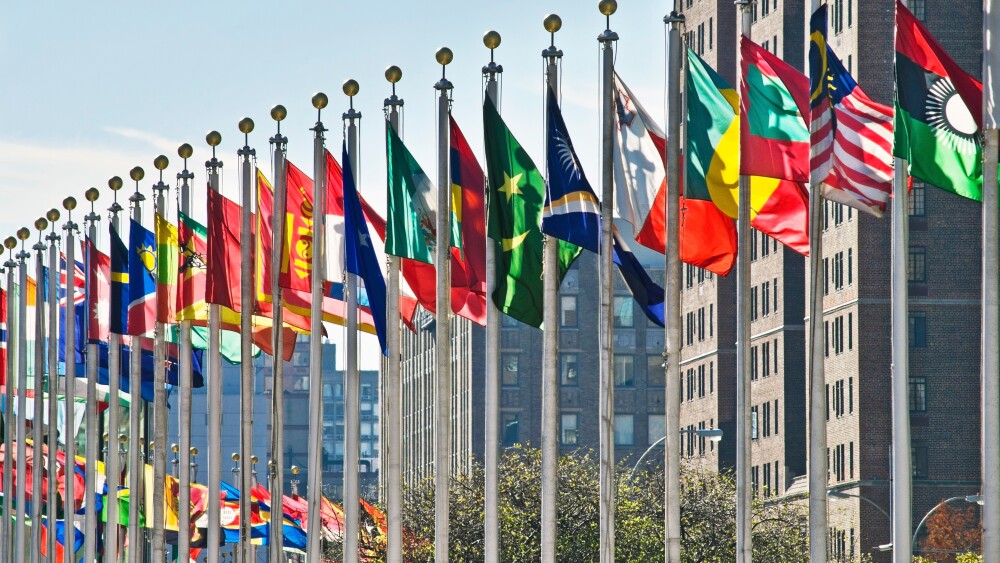The war in Yemen has dragged on for nearly a decade, but one truth has remained constant: the Houthis would not have survived—let alone expanded their military reach—without Iran’s weapons pipeline.
A recent report by London’s Conflict Armament Research offered the clearest evidence yet. Shipments seized in western Yemen contained Ghadir anti-ship cruise missiles and Sejjil medium-range ballistic missiles, each stamped with official Iranian manufacturing marks. Tehran did not bother to erase these identifiers, a brazen display of contempt for international law and proof that it continues to act as a rogue state, exporting instability far beyond its borders.
Since 2015, Tehran has stonewalled the United Nations Panel of Experts, which has repeatedly documented Iran’s violations of Security Council Resolution 2216.
Yet Iran persists in denial, insisting that the Houthis have developed their own capacity to manufacture long-range missiles and stealth drones. Since 2015, Tehran has stonewalled the United Nations Panel of Experts, which has repeatedly documented Iran’s violations of Security Council Resolution 2216 of 2015, which imposed an arms embargo on the Houthis, among others. The result is a cycle of denial, deflection, and destruction—paid for by Yemeni civilians.
Leading international think tanks have reached the same conclusion. The International Institute for Strategic Studies has warned of the Houthis’ growing technical sophistication. The Royal United Services Institute has cautioned that tactical missile interceptions alone cannot bridge the widening strategic gap. The Center for Strategic and International Studies has underscored the resilience of Iran’s smuggling networks, which allow the Houthis to constantly replenish and modernize their arsenal. Chatham House has highlighted the enabling role of corruption and fragmentation in areas nominally under the control of Yemen’s internationally recognized government.
Strikes on Houthi positions, however precise, will remain futile unless Iran’s supply lines are severed. During my tenure as Yemen’s Foreign Minister, I proposed appointing a senior security coordinator to lead Yemeni and international counter-smuggling efforts. The response I received was appalling: The candidate under consideration was complicit with the Houthis. This is why the Houthi lifeline endures.
Meanwhile, reports circulated of the Islamic Revolutionary Guard Corps and Hezbollah operatives moving in and out of Yemen through safe passages in government-held areas—or even aboard U.N. and Omani flights disguised as “humanitarian” missions. Last week, there were reports of U.N. flights evacuating Houthis out of Sanaa. Such loopholes, tolerated in silence, keep the Houthi war machine alive.
To choke critical Houthi supply chains, the United Nations and international community must have tighter export controls and pursuit of front companies.
Containing the Houthis requires more than airstrikes. It requires a coordinated international strategy that establishes maritime domain awareness. This will require satellites, radars, and interception points in Bab-el-Mandeb and the Gulf of Aden. There also must be upstream interdiction. This requires both human and signals intelligence targeting smugglers, middlemen, and assembly hubs. To choke critical Houthi supply chains, the United Nations and international community must have tighter export controls and pursuit of front companies in China, Russia, North Korea, and Iran. To cut financial flows, the United Nations must sanction Houthi taxation and transfer networks, imposing a financial blockade on their territories. There is precedent in sanctions the U.N. Security Council has imposed on Eritrea.
It is also necessary to let reality, rather than diplomatic wishful thinking, govern decision-making. Anti-corruption measures must address collusion within government-held areas that sustain smuggling. There will be no progress until the international community empowers disciplined local partners and strengthens the Southern Transitional Council and National Resistance on the West Coast, equipping both with resources to secure efficient coast guards. A Horn of Africa presence also will help disrupt maritime routes feeding Iranian supply lines.
The United Nations must prioritize effectiveness over wagon-circling to avoid criticism of its past decisions. This will require recognizing faults in the Stockholm Agreement inspections mechanisms and expanding inspections to cover small shipments and dual-use components, and halting all transfers through the port of Hodeidah [Al-Hudaydah].
Both a Yemeni and a U.N.-appointed coordinator should oversee such reforms and report directly to the Security Council.
There is no time to waste.
The Houthis are Iran’s last functional proxy in the Arab world. Cutting their smuggling lifeline is not only a security imperative—it is a global responsibility. The international community must recognize that inaction means perpetuating a conflict that bleeds Yemen and destabilizes the entire region.
There is no time to waste. The U.N. Security Council and Yemen’s international partners should convene an emergency session of the United Nations Security Council during the U.N. General Assembly to craft a clear strategy to halt Iran’s illicit weapons transfers. Such action is essential to uphold international law, expose Iran’s state-sponsored terrorism, and dismantle the last effective node in its regional proxy network.







